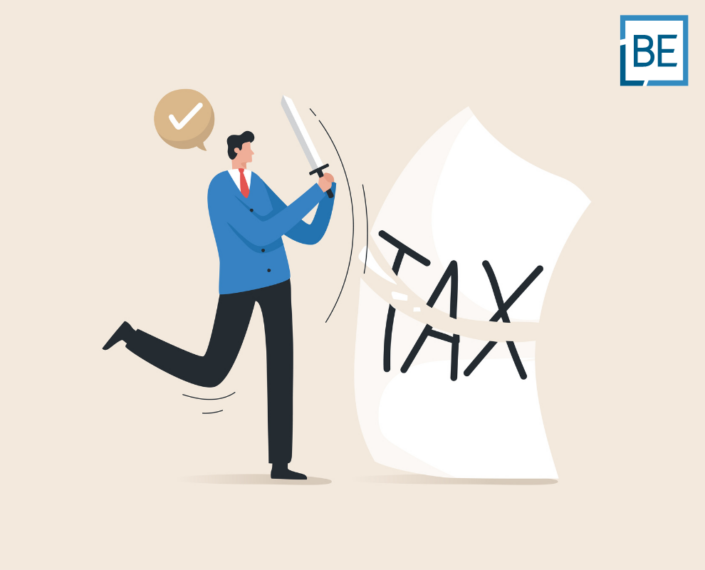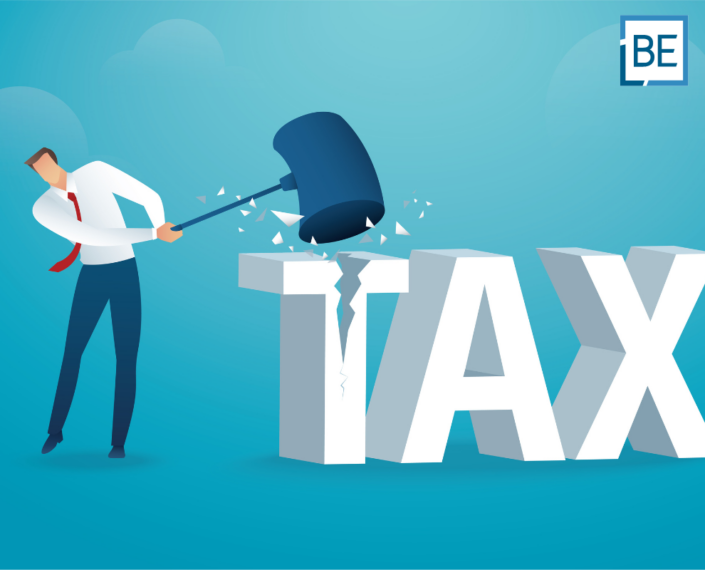Belaws Home ›› Thailand ›› Blog ›› How to Start an E-commerce Business in Thailand
incorporation
How to Start an E-commerce Business in Thailand
Thailand has experienced a significant shift towards online shopping, making it an ideal location to establish an e-commerce business. With Thailand ranking as the 26th largest e-commerce market, the potential for growth means Thailand presents a promising opportunity for entrepreneurs.
This blog post will provide a step-by-step process for starting an e-commerce business in Thailand, including the legal requirements, regulations, and benefits of obtaining an e-commerce business licence.
Key points
- A business in Thailand operating one or more websites for the sale of their goods or services must apply for an e-commerce licence.
- E commerce businesses must apply for an e-license within 30 days of starting operations.
- E commerce companies are required to have an active website and are required to submit the domain name registration documents for their website as part of the application for the e-commerce licence.
What are the Legal Requirements for Starting an Online Business in Thailand?
Thailand recognizes and regulates e-commerce businesses under the Electronic Transaction Act (ETA). This act allows for the use of electronic technology to conduct online business transactions, including the sale of products and services. If you plan to establish an e-commerce business in Thailand, the following legal requirements must be satisfied:
Website Creation
Since e-commerce businesses operate online, you must create a website for your business. The application for an e-license should be made within 30 days of the website’s commencement. You must also submit the domain name registration document along with the application.
Compliance with Bank of Thailand Requirements
If your e-commerce business handles credit card transactions, you must ensure compliance with the requirements set by the Bank of Thailand.
Registration under the Consumer Protection Board’s Office (OCPB)
To safeguard consumer rights, you may need to register with the OCPB if your e-commerce business meets specific criteria. This includes having more than 3000 money transfers or 400 money transfers yielding 2 million THB in a year. Notifying the OCPB of these conditions is essential for maintaining compliance.
What are the E-commerce Laws and Regulations in Thailand?
To foster the growth and smooth operation of e-commerce in Thailand, the Thai government has implemented laws and regulations that promote fair competition, attract foreign investors, and ensure private sector involvement in trade and commerce. The two primary laws directly related to the e-commerce sector are:
The Electronic Transaction Act of B.E. 2544
This act legally recognizes electronic transactions and considers electronic e-commerce platforms reliable. It treats data messages as original transaction documents, recognizes electronic signatures, and specifies methods for the receipt and dispatch of data.
The Computer Crime Act of B.E. 2550
This act aims to prevent and suppress computer-related offences. It covers offences related to computer data, computer systems, and tools used for committing computer crimes. The act also imposes liabilities and obligations on internet service providers.
Additional legal provisions indirectly related to the e-commerce industry in Thailand include the Penal Code, Data Protection Laws, and Consumer Protection Laws.
What is the Registration Process for an E-commerce Company?
The process of registering an e-commerce business in Thailand involves several steps and requirements. Here is a breakdown of the registration process:
Clarify the Activities of Your E-commerce Company
Different types of e-commerce activities may require specific licences. It is essential to understand the nature of your business and obtain the necessary licences. The two common e-commerce models are marketplace and dropshipping, each with its own registration procedures.
Create an E-commerce Website
For your website’s domain name registration, you will need to consult with the Thai Network Information Center (THNIC). The registration process for a “.co.th” extension requires specific documents, including the certificate of registration, VAT registration document, and VAT modification application document. While trademark registration is not mandatory for e-commerce businesses, it provides legal protection against infringement and enhances your business’s credibility.
Read more:
Company Registration
Once you have completed the necessary steps and gathered the required documents, you must register your company with the Business Development Department of Thailand.
A private limited company is the most common business type for an e-commerce business. Registering your business entity ensures you operate legally and have the necessary legal protections.
The requirement for opening a Thai Limited Company are as follows:
- 2 shareholders
- One or more directors
- 50,000 THB minimum capital (2M THB if you want to hire a foreign employee)
- A registered corporate address in Thailand
Can E-commerce Businesses be 100% Foreign Owned?
In practice, the Foreign Business Act prohibits foreign owned companies from operating e-commerce in Thailand. However, there are potential options for a foreign company to operate an e-commerce business in Thailand:
Foreign Business License
A Foreign Business License (FBL) is a licence awarded to foreign companies or investors intending to engage in business activities typically restricted to Thai companies under the Foreign Business Act. The FBL allows foreign businesses to operate as 100% foreign owned companies in Thailand and participate in certain industries or sectors otherwise limited to Thai citizens. Key requirements include a minimum capital of THB 3 million per business applied for the licence, loans against capital for doing company business do not exceed 7:1, and having at least one authorized director with an address in Thailand.
Thai Partner
Under the FBA, foreign ownership of a limited company is capped at a maximum of 49.99% (unless an FBL or a BOI promotion has been obtained). If 50% or more of the shares of a company are owned by a foreigner, it is considered a foreign company.
However, being a minority shareholder in a Thai Limited company does have some advantages over a 100% foreign-owned company. For example, a company which has less than 50% foreign owned shares is considered a Thai company, and therefore, not subject to the restrictions of the FBA and therefore does not require a Foreign Business Licence or a BOI promotion.
It is important to note that the use of nominee shares in Thailand is expressly prohibited by the Foreign Business Act. A nominee shareholder is a person (Thai National) who has shares in a company but has not made any investment, no financial rights or ability to control nor manage the company.
Board of Investment (BOI)
Unfortunately, the BOI does not offer any promotions for e-commerce anymore. They do however, have promotions for software development. It is important to note that software development promotions from the BOI does not include the retail and wholesale of various product types, but instead focuses on the development of software, digital platforms, or digital content. Therefore, for an e-commerce company to qualify for such a promotion, their website or platform would need to meet the BOI requirements.
It’s important to note that companies operating e-commerce businesses with either the foreign business licence are still subject to registering the e-commerce business with the Department of Business Development and obtaining an e-commerce licence.
What Taxes Apply to an E commerce Business in Thailand?
Opening an e-commerce business in Thailand may require optimising your payment gateways and understanding the applicable taxes. Here are the key taxes to consider:
Value Added Tax (VAT)
Thailand imposes a zero percent VAT rate for the export and import of services and goods. However, foreign e-commerce businesses are required to pay 7% VAT to the Revenue Department of Thailand. If your annual sales exceed THB 1.8 million, you must register for VAT and pay the applicable tax.
Corporate Income Tax
E-commerce businesses in Thailand are subject to corporate income tax. The standard corporate tax rate is 20%, but small and medium-sized enterprises may qualify for lower rates.
How can Belaws help?
For more information about starting an e-commerce company in Thailand, why not talk to one of our experts now?
Please note that this article is for information purposes only and does not constitute legal advice.
Our consultations last for a period of up to 1 hour and are conducted by expert Lawyers who are fluent in English, French and Thai.
Consultations can be hosted via WhatsApp or Video Conferencing software for your convenience. A consultation with one of our legal experts is undoubtedly the best way to get all the information you need and answer any questions you may have about your new business or project.
USD 150
Up to 1 hour
Online payment (Paypal or Credit card)
Legal consultation can be conducted in English, French or Thai
Legal consultations are handled by experienced lawyers from the relevant fields of practice
Frequently asked questions
Can foreigners do online business in Thailand?
Yes, foreigners can operate online businesses in Thailand. However, there are certain legal requirements and regulations that must be followed, including obtaining the necessary licenses and adhering to the Foreign Business Act.
How much does it cost to start a small business in Thailand?
The cost of starting a small business in Thailand can vary depending on the type of business and its specific requirements. Generally, costs may include registration fees, legal fees, rental expenses, and initial capital investment. It’s advisable to consult with legal and financial experts to get a clear understanding of the costs involved.
Can foreigners own 100% of a business in Thailand?
In practice, the Foreign Business Act restricts foreign ownership of businesses in Thailand. However, there are options for foreigners to operate businesses, such as obtaining a Foreign Business License (FBL) or partnering with a Thai citizen. Each option has its own set of requirements and considerations.
What do I need to legally start an online business in Thailand?
To legally start an online business in Thailand, you’ll need to obtain an e-commerce business licence and adhere to the laws and regulations governing e-commerce activities in the country.
Why is it important to get an e-commerce business licence in Thailand?
Obtaining an e-commerce business licence is crucial as it ensures legal compliance, helps you avoid penalties, and enables access to payment gateways for offering a wider range of payment options to customers.
How do I register an e-commerce company in Thailand?
To register an e-commerce company in Thailand, you need to submit the necessary documents to the District Office or Bangkok Metropolitan Administration, including the application for e-commerce registration and identification documents.
What taxes do I need to consider for my e-commerce business in Thailand?
Key taxes to consider for your e-commerce business in Thailand include Value Added Tax (VAT) and Corporate Income Tax, which vary based on your business’s annual sales and size.
How does the Foreign Business Act affect foreign-owned businesses in Thailand?
The Foreign Business Act restricts foreign ownership in certain industries, but there are options available, such as obtaining a Foreign Business License (FBL) or partnering with a Thai citizen, to operate legally in Thailand.
What are the steps to create an e-commerce website in Thailand?
To create an e-commerce website in Thailand, you’ll need to consult with the Thai Network Information Center (THNIC) for domain registration and submit domain name registration documents along with the application for an e-commerce licence.
What laws regulate e-commerce in Thailand?
E-commerce in Thailand is regulated primarily by the Electronic Transaction Act of B.E. 2544 and the Computer Crime Act of B.E. 2550, which govern electronic transactions, data protection, and computer-related offences.
Why should I consider registering with the Consumer Protection Board’s Office (OCPB) for my e-commerce business in Thailand?
Registering with the OCPB helps safeguard consumer rights and ensures compliance with consumer protection laws, enhancing trust and credibility for your e-commerce business in Thailand.
Related articles
Subscribe today
Subscribe today
To our newsletter for all the latest legal news
in South East Asia, Belaws updates and
special promotions on our services.
To our newsletter today for all the latest legal news in South East Asia,
Belaws updates and special promotions on our services.







